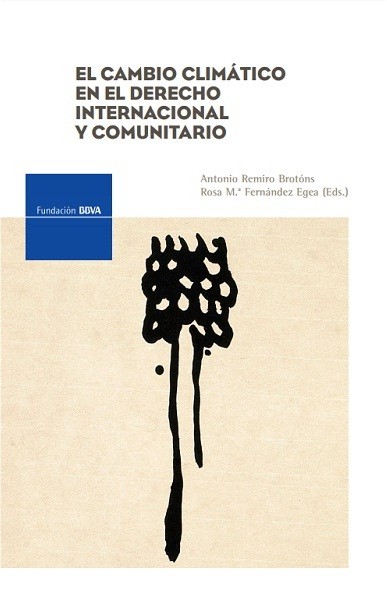
PublicationMonographs
El cambio climático en el derecho internacional y comunitario
The United Nations Framework Convention on Climate Change and the Kyoto Protocol are the key international instruments for dealing with global warming. Cooperation between countries is always needed to protect our common environmental resources, but becomes more vital still in the battle against climate change. This is because the planet’s rising temperatures have global consequences, and also because the worst will be reserved for the countries and people who have done least to cause the damage. Reason enough for the environmental principles of precaution and shared responsibility to be applied strenuously, but with differential force, in international regulations to mitigate climate change.
This book looks at the core issues in climate change regulation, focusing especially on the application of the Kyoto Protocol in international and EU law. The Protocol marks an advance over other international instruments to preserve the environment in establishing specific, quantifiable targets and a sophisticated compliance control system.
The authors also examine the European Union’s role as a leader in international negotiations and a champion of policies to cope with the warming phenomenon. Climate change is a global and, at the same time, horizontal process spanning many regulatory sectors that, on the surface, have little to do with environmental protection, including international trade laws, the protection of indigenous peoples or international security; all of which are addressed in its pages.
National and international climate change experts will find much that is helpful in this multi-author publication. However its academic approach should also appeal to professors and students with an interest in international and European environmental legislation and the interaction between the diverse regulatory domains impacted by the enforcement of international rules on climate change.
Access Chapter – Offprints in PDF format
- Chapter 1: Rosa Giles Carnero
- Chapter 2: Ana Payró Llopis
- Chapter 3: Eva María Rubio Fernández
- Chapter 4: Michael Mehling
- Chapter 5: Mar Campins Eritja
- Chapter 6: Esther Zapater Duque
- Chapter 7: Rosa M.ª Fernández Egea
- Chapter 8: Francesco Sindico
- Chapter 9: Soledad Torrecuadrada García-Lozano
- Chapter 10: Alfonso J. Iglesias Velasco
